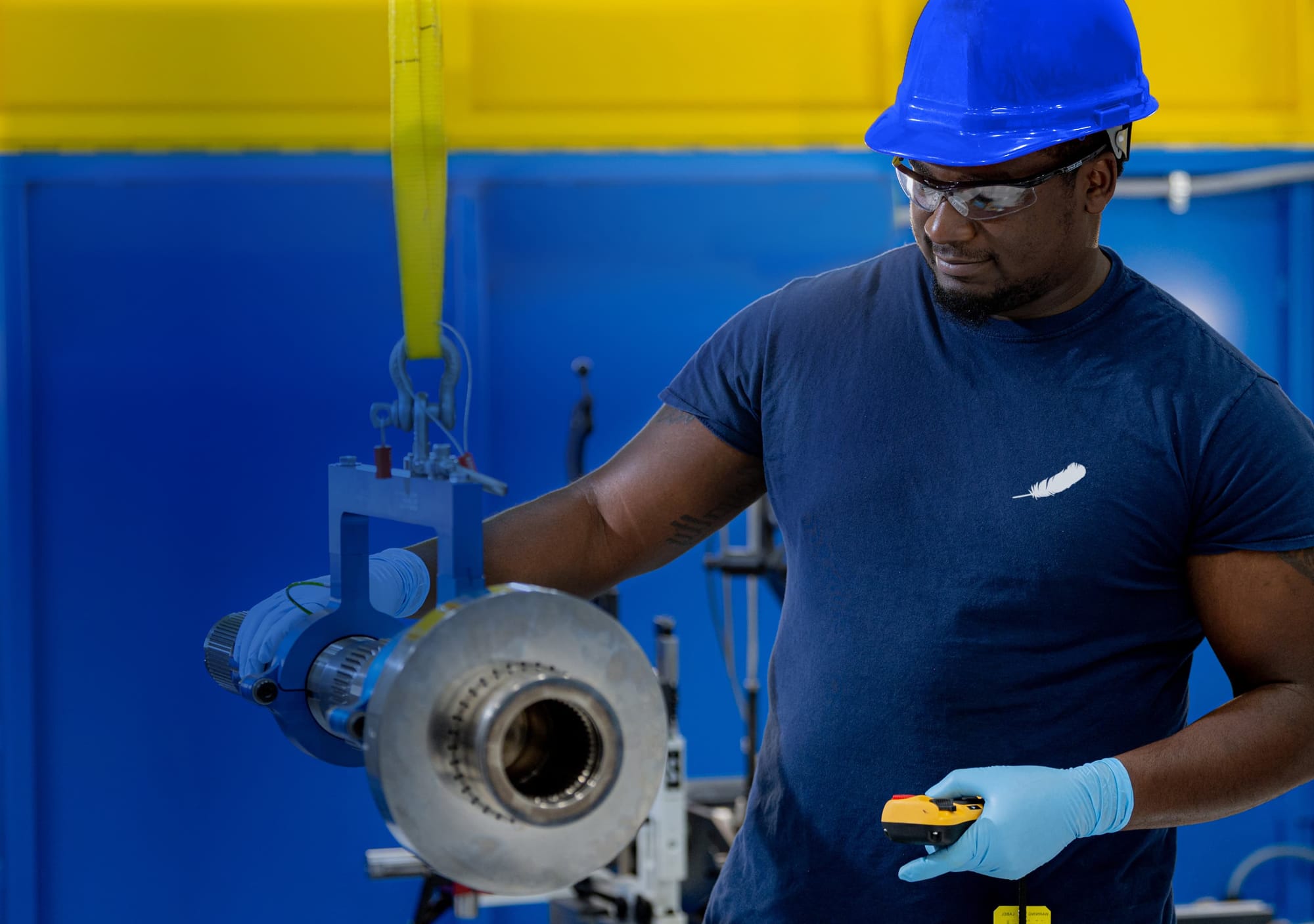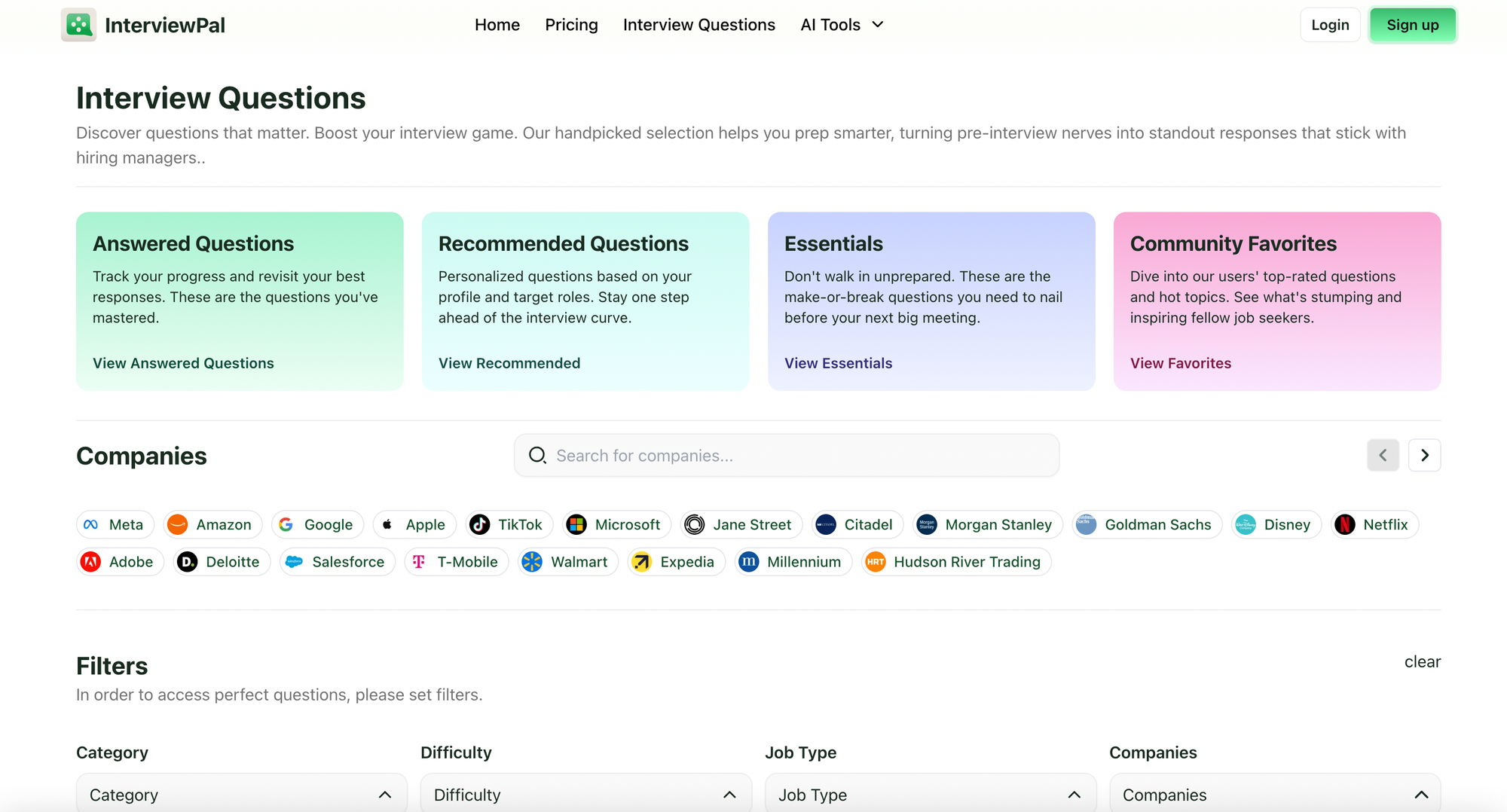When it comes to innovating in aerospace, Blue Origin recruits only the best. Their interview process rigorously tests for technical prowess, commitment to quality, safety, and mission alignment. Here’s what to expect if you're considering a career with Blue Origin, along with insights into what each question reveals about the company’s values.
1. Commitment to Quality and Safety
Question 1: "Tell me about a time when you refused to compromise on quality standards."
Avionics Software Engineer Example: “During a project to develop a new control system, there was pressure to meet a launch deadline. Some team members suggested skipping a phase of testing, but I knew this was a risk to system integrity. I advocated for the importance of this phase, even proposing a streamlined version to save time while covering essential checks. Ultimately, we proceeded with the testing, which uncovered a bug that could have led to significant safety risks. The extra time proved invaluable in ensuring system reliability.”
Fluid Systems Engineer Example: “We were testing a new fluid dynamics model under tight timelines. When pressure arose to accelerate testing, I pointed out that skipping critical stress tests could compromise safety. I collaborated with the team to re-prioritize tasks, so we maintained the tests and avoided potential quality issues.”
Machinist Example: “In a high-demand production week, I noticed minor deviations in a part’s specifications that others thought were within tolerance. I insisted we halt until we recalibrated to correct the error. This decision prevented what could have been a costly recall, and I was later commended for my vigilance in upholding our standards.”
Question 2: "Share an instance when you improved the quality of a solution that was already receiving positive feedback."
Avionics Software Engineer Example: “We launched a new version of our flight control software, which received excellent reviews. Still, I identified a performance lag that, while minor, could impact efficiency. I re-evaluated our code and optimized processing paths, reducing lag by 20%, which enhanced system responsiveness.”
Manufacturing Engineer Example: “I designed a workflow that successfully reduced production time by 15%. Although everyone was pleased, I saw room for improvement in quality control checkpoints. After implementing additional quality verifications, we decreased defect rates by another 5%, further solidifying the workflow’s impact.”
Question 3: "Describe a situation where you had to make a critical safety decision under pressure."
Fluid Systems Engineer: “We had a pressure imbalance during a test. I halted operations and initiated safety protocols, collaborating with the team to troubleshoot. This proactive approach prevented potential system damage.”
Question 4: "Tell me about a time you identified a potential safety issue before it became a problem."
General Helper: “I noticed a loose cable near high-traffic areas on the shop floor. I reported it immediately, ensuring the area was secured to prevent accidents.”
Question 5: "How do you ensure quality when working with tight deadlines?"
Supply Chain Manager: “I employ quality checkpoints at key milestones in the process to catch issues early, allowing for adjustments without risking the timeline.”
Question 6: "Describe a time when you had to push back against cutting corners."
Intern: “In a team project, some members wanted to skip certain quality checks. I suggested a plan to meet the deadline without compromising on those critical checks, and it worked.”
2. Technical Excellence and Innovation
Question 7: "Talk about a time when you had to make a decision without sufficient data."
Systems Engineer: “With incomplete telemetry data, I ran simulations to estimate parameters and made adjustments based on real-time feedback, balancing caution with forward momentum.”
Question 8: "Describe a calculated risk you took where speed was critical."
Engineer (Research): “We needed faster results for a new material test. I proposed running multiple tests simultaneously, with backup materials on standby, which saved time without risking accuracy.”
Question 9: "Tell me about a technically complex project you led from inception to completion."
Avionics Software Engineer: “I spearheaded a project developing a real-time diagnostic tool for onboard systems. Leading a cross-functional team, we used iterative testing to refine the software, successfully launching it on schedule.”
Question 10: "How would you design a system for monitoring spacecraft telemetry data?"
Systems Engineer: “I’d implement a modular system with real-time data monitoring, error-handling protocols, and redundancy to ensure constant feedback even under strain.”
Question 11: "What's your approach to prioritizing market requirements?"
Administrator - Trade Compliance: “I balance market demand with regulatory compliance by closely monitoring policies and prioritizing features that align with both market needs and legal standards.”
Question 12: "Describe a time you introduced a new technology or process to your team."
Machinist: “I proposed a new CNC calibration method that reduced our setup time by 20%. I trained the team, and we saw immediate improvements in efficiency.”
3. Leadership and Team Dynamics
Question 13: "Tell me about a time when you had to communicate a change in direction that people were concerned about."
Supply Chain Manager: “Due to budget cuts, I had to adjust our supplier list. I communicated openly about the reasons and addressed their concerns, making sure we maintained quality standards.”
Question 14: "How do you build trust with a new team?"
Intern: “I build trust by listening, showing respect for others' ideas, and following through on my responsibilities.”
Question 15: "Describe a situation where you strongly disagreed with your manager."
Fluid Systems Engineer: “When my manager suggested bypassing a testing phase, I presented data showing the risks involved. My data-driven approach convinced him to proceed with the full testing.”
Question 16: "Tell me about a time you had to work with a difficult team member."
General Helper: “A colleague was resistant to safety protocols. I approached him privately, shared my concerns, and asked for his input, which helped us find common ground.”
Question 17: "How have you handled giving difficult feedback?"
Systems Engineer: “I had to give constructive feedback to a team member who wasn’t meeting deadlines. I framed it as a way to help them succeed and offered support, which led to positive improvements.”
Question 18: "Describe how you've managed competing priorities from multiple stakeholders."
Avionics Software Engineer: “When different teams had conflicting requests, I prioritized by aligning their needs with our project goals and communicated my decision process transparently.”
4. Problem Solving and Decision Making
Question 19: "Tell me about a time you faced an unexpected challenge in a project."
Engineer (Research): “We faced an equipment failure during a crucial test phase. I coordinated with technicians, sourced replacement parts, and recalibrated the setup, allowing us to proceed with minimal delay.”
Question 20: "Describe a situation where you had to solve a problem no one had encountered before."
Manufacturing Engineer: “We faced a unique production bottleneck with a new material. I collaborated with engineers and designed a new process, which eliminated the issue and improved productivity.”
Question 21: "Share a time when you had to make a difficult decision with incomplete information."
Systems Engineer: “I made a design choice based on limited prototype data. I implemented contingency measures and monitored performance closely, which allowed us to adapt quickly if needed.”
Question 22: "How have you handled project failures?"
Machinist: “When a part I machined didn’t meet specifications, I analyzed the error, recalibrated the machine, and documented the fix to avoid future mistakes.”
Question 23: "Tell me about a time you had to pivot quickly based on new data."
Supply Chain Manager: “When a supplier delayed a critical shipment, I quickly sourced an alternative to maintain production flow, ensuring we met deadlines without compromising quality.”
Question 24: "Describe a situation where you improved efficiency without compromising quality."
Manufacturing Engineer: “I implemented a new inspection protocol that reduced bottlenecks while maintaining stringent quality checks, improving workflow by 20%.”
5. Mission Alignment and Cultural Fit
Question 25: "Why Blue Origin?"
Avionics Software Engineer: “Blue Origin’s vision to make space accessible is inspiring. My skills in avionics engineering align well with the technical challenges at Blue Origin, and I’m eager to contribute to projects that push the boundaries of space exploration.”
Question 26: "Tell me about a long-term goal you worked towards."
Intern: “During my internship, I developed a project plan for automating data analysis. I systematically worked through each phase and achieved full automation by the end of my internship.”
Question 27: "How do you stay current with aerospace industry developments?"
Engineer (Research): “I subscribe to industry journals, attend webinars, and am part of professional networks that discuss the latest in aerospace technology.”
Question 28: "Describe a time you took on something beyond your defined role."
General Helper: “I noticed some machinery maintenance tasks were lagging behind, so I volunteered to assist the maintenance team, which improved production efficiency.”
Question 29: "Tell me about your proudest professional achievement."
Administrator - Trade Compliance: “I led an audit that identified compliance gaps and implemented solutions that brought us back into full compliance, minimizing future risks.”
Question 30: "How do you see the commercial space industry evolving?"
Supply Chain Manager: “I see more companies focusing on sustainability in materials and operations. Blue Origin’s emphasis on reusability is a trend I believe will define the future of commercial spaceflight.”

Specific Job Categories and Sample Responses
Avionics Software Engineers
- Question: "How would you design a system for monitoring spacecraft telemetry data?"
Insight: Blue Origin seeks architects who can think about reliability and redundancy.
Suggested Response: Discuss scalable data processing, error-handling protocols, and real-time monitoring features.
Fluid Systems Engineer
- Question: "Describe a situation where you improved fluid system efficiency under a tight timeline."
Focus: Highlight troubleshooting and real-time adaptations for maintaining system integrity.
Manufacturing Engineers
- Question: "Tell me about a time when you optimized a production process without cutting corners."
Key Demonstration: Show your method for balancing speed with rigorous quality checks.
System Engineers
- Question: "Describe a critical project that required cross-functional collaboration."
Success Pattern: Blue Origin values system thinkers who can lead cross-discipline teams, so mention collaborative methods.
Machinist
- Question: "Describe a time you caught a defect before production."
Focus: Highlight your keen eye for detail and proactive defect identification strategies.
Administrator - Trade Compliance
- Question: "How do you stay updated on export control regulations?"
What They're Testing: Your commitment to compliance and continuous learning.
Engineer (Research)
- Question: "Tell me about a research project you’re proud of."
Insight: Blue Origin appreciates innovative research, so discuss your impact, findings, and practical applications.
General Helper
- Question: "Describe how you've contributed to maintaining safety on-site."
Key Focus: Demonstrate knowledge of safety protocols and commitment to proactive risk identification.
Intern
- Question: "What interests you most about working in aerospace?"
What They’re Testing: Passion for the field and curiosity to learn.
Management (Supply Chain)
- Question: "Describe a time when you had to manage competing supply chain priorities."
Insight: Show strong decision-making skills and stakeholder management.
Strategies for Preparation for a Blue Origin Interview
Success at Blue Origin interviews requires more than just memorizing answers. Here's what our analysis reveals about effective preparation:
- Safety-First Mindset
- Every answer should acknowledge safety considerations
- Risk mitigation should be explicit
- Quality should never be compromised for speed
- Data-Driven Approach
- Quantify impacts wherever possible
- Show systematic decision-making
- Demonstrate validation methods
- Balance Innovation with Reliability
- Show creativity within aerospace constraints
- Emphasize systematic validation
- Demonstrate scalable thinking
Understanding these 30 questions isn't just about preparing answers – it's about aligning with Blue Origin's unique approach to aerospace innovation. Their interview process reveals a company that values methodical innovation, unwavering safety standards, and long-term thinking.
For candidates preparing for Blue Origin interviews, success comes from understanding not just what to answer, but why these questions matter to a company building humanity's path to space.
Why Working at Blue Origin Offers Unique Benefits
Blue Origin’s commitment to its employees is evident in the robust benefits package they offer, designed to support health, financial well-being, and work-life balance. Here’s a look at the standout benefits that Blue Origin employees enjoy:
- Comprehensive Health Coverage: Employees have access to Premera Blue Cross for extensive medical coverage, as well as dental plans covering preventative care and orthodontics through a large network.
- 401(k) Retirement Match: Blue Origin contributes by matching 100% on the first 1-5% of compensation employees contribute, helping staff save effectively for retirement.
- Generous Paid Time Off: Employees enjoy paid time off, including most federal holidays and up to four weeks of annual PTO, supporting a healthy work-life balance.
- Relocation Assistance: For specific roles, Blue Origin provides a relocation team to help employees and their families settle in, covering logistics, housing, and travel expenses.
- Education Support Program: Through the Education Support Program (ESP), employees receive financial assistance to pursue higher education, fostering continued growth and learning.
- Dog-Friendly Environment: Blue Origin welcomes furry friends at many office locations, making for a welcoming and inclusive workplace atmosphere.
- Bundled Insurance Options: In addition to health benefits, Blue Origin offers bundled insurance rates that include home, auto, and pet insurance options.
- Company-Paid Life and Disability Insurance: Blue Origin provides financial security to employees and their families through comprehensive life and disability insurance, offering peace of mind in case of accidents or unexpected events.
These benefits reflect Blue Origin’s dedication to creating a supportive, balanced, and inclusive environment for all employees. Working at Blue Origin isn’t just about contributing to space exploration; it’s about building a rewarding career with meaningful support along the way.
To excel in a Blue Origin interview, especially with questions that delve deep into behavior, technical prowess, and alignment with mission values, thorough preparation is essential. InterviewPal offers an extensive question bank tailored to behavioral interview preparation for Blue Origin, giving candidates a robust toolkit to practice responses, refine their stories, and develop a confident, polished approach.
With InterviewPal's question bank, you can:
- Practice Industry-Specific Questions: Focus on behavioral and technical questions relevant to aerospace and engineering roles.
- Refine Your STAR Responses: Structure your answers using the Situation, Task, Action, and Result format for clear, impactful storytelling.
- Build Confidence: Rehearse responses for challenging scenarios, so you’re ready for any curveballs that come your way in the interview.
Whether you're preparing for roles like Systems Engineer, Manufacturing Engineer, or a position in management, InterviewPal can help you tailor your responses to meet Blue Origin’s high standards. Start practicing with InterviewPal’s question bank and take a confident step toward landing your dream role at Blue Origin.



